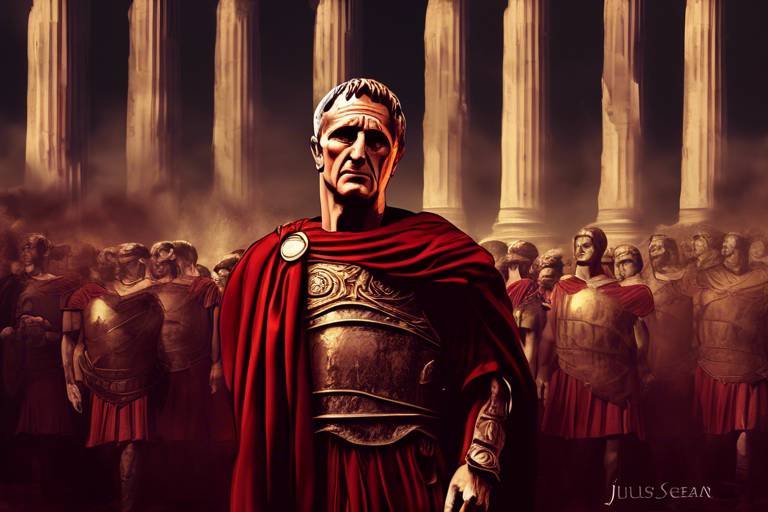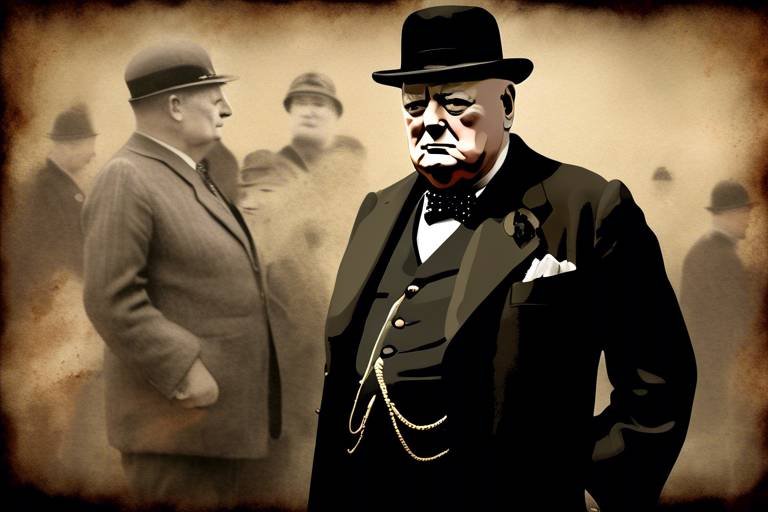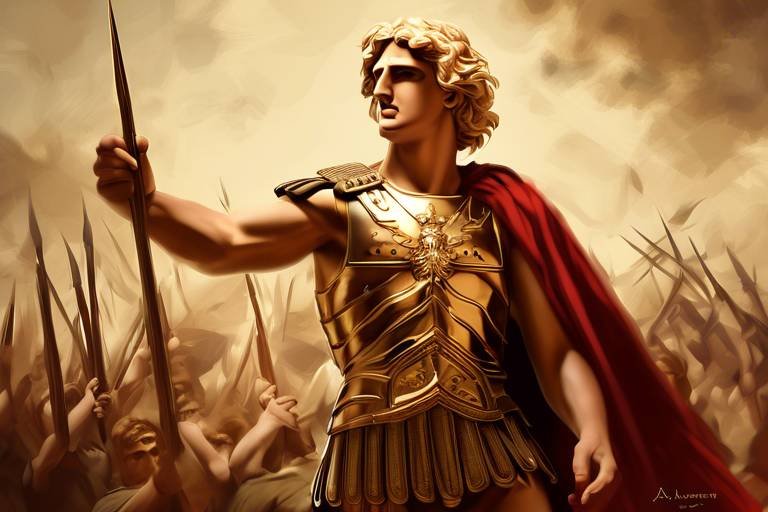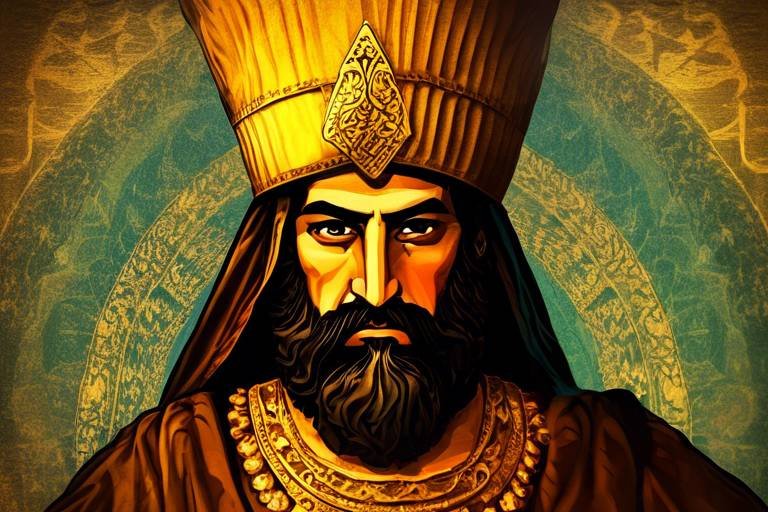John Locke: The Father of Liberalism
John Locke, often hailed as the Father of Liberalism, was a prominent figure in the realm of political philosophy. His groundbreaking ideas have left an indelible mark on modern liberal thought, shaping the principles of democracy and individual freedoms that we hold dear today. Locke's intellectual contributions transcend time, resonating with generations of thinkers and policymakers.

Early Life and Education
John Locke, often hailed as the Father of Liberalism, had a remarkable early life and education that greatly influenced his later philosophical and political works. Born in 1632 in Wrington, Somerset, Locke grew up in a time of political upheaval and religious conflict in England. His father, a lawyer and small landowner, instilled in him a strong work ethic and a passion for learning.
Locke's education began at the Westminster School in London, where he excelled in Latin, Greek, and logic. He later attended Christ Church, Oxford, studying a wide range of subjects including natural philosophy, medicine, and law. It was during his time at Oxford that Locke was exposed to the ideas of leading thinkers such as Robert Boyle and Thomas Willis, sparking his interest in empiricism and scientific inquiry.
After completing his studies at Oxford, Locke pursued a career in medicine and briefly served as a personal physician to the Earl of Shaftesbury. This experience provided him with firsthand exposure to political intrigue and power struggles, shaping his views on governance and the rights of individuals.
Locke's early experiences laid the foundation for his later works, including the influential "Two Treatises of Government" and "An Essay Concerning Human Understanding." His commitment to reason, tolerance, and the pursuit of knowledge would define his legacy as one of the most important figures in the history of political philosophy.
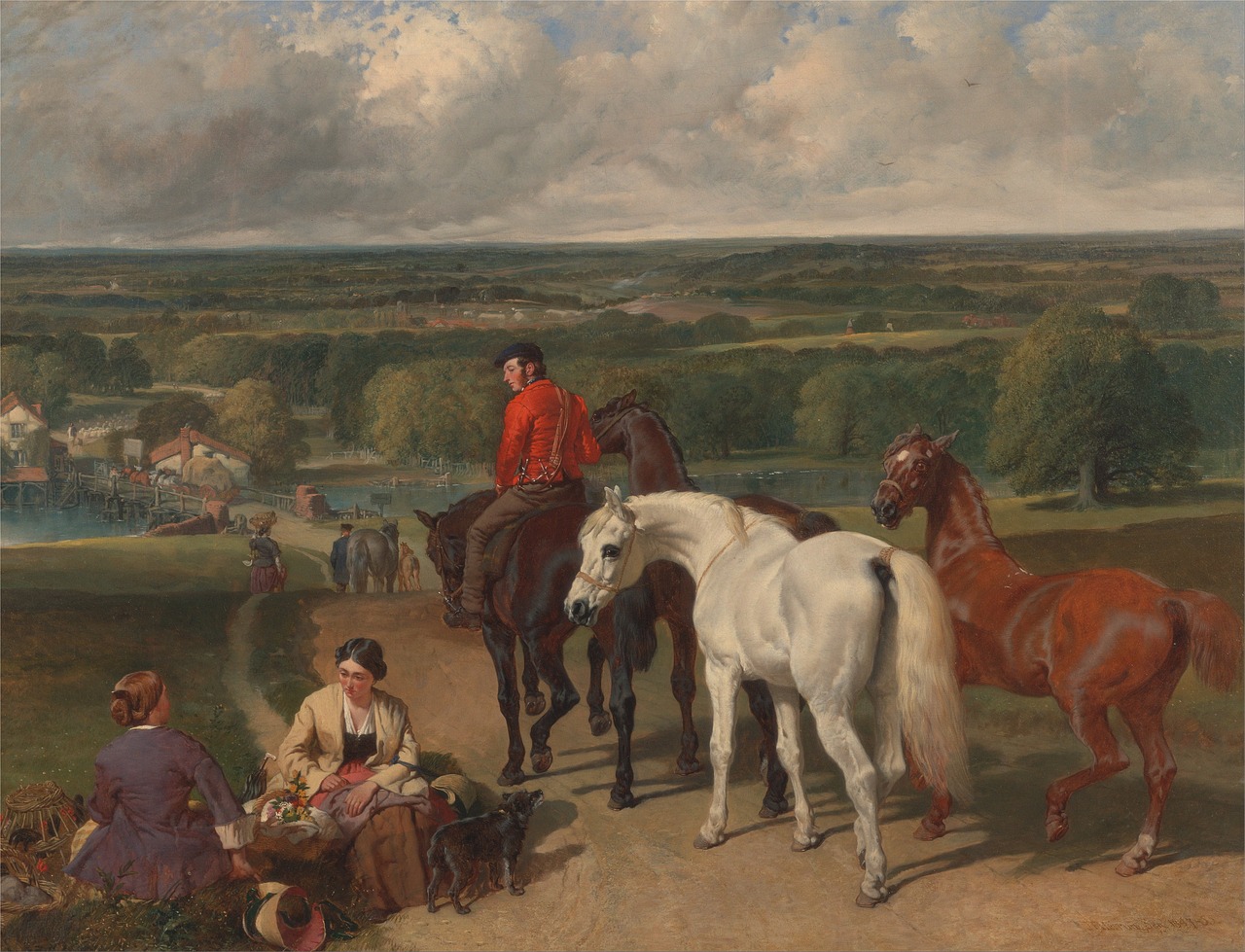
Tabula Rasa and Empiricism
John Locke's contributions to political philosophy and his influence on modern liberal thought are profound. This article explores Locke's life, key ideas such as natural rights and social contract theory, and his impact on democratic principles and individual freedoms.
John Locke's theory of Tabula Rasa, or the idea that the mind is a blank slate at birth, revolutionized the way we understand human knowledge and experience. According to Locke, individuals are not born with innate ideas but acquire knowledge through sensory experiences and reflection. This concept laid the groundwork for his philosophy of empiricism, which emphasizes the importance of observation and experience in forming beliefs and understanding the world.
Empiricism, as championed by Locke, challenges traditional views that knowledge is inherited or predetermined, asserting instead that our understanding of the world is shaped by our interactions with it. By emphasizing the role of sensory perception and reflection in shaping human cognition, Locke's empiricism paved the way for a more scientific and evidence-based approach to philosophy and politics.
Locke's emphasis on empiricism also influenced his political philosophy, particularly his views on individual rights and the role of government. By grounding his ideas in observable experiences and rational reflection, Locke argued for the protection of natural rights such as life, liberty, and property. This foundation in empirical observation provided a solid basis for his arguments on the limitations of government power and the importance of individual autonomy.
Furthermore, Locke's theory of Tabula Rasa and empiricism challenged prevailing notions of innate knowledge and authority, paving the way for a more democratic and egalitarian society. By asserting that knowledge is derived from experience rather than divine revelation, Locke promoted a more inclusive and accessible approach to understanding the world, empowering individuals to question established beliefs and institutions.
In essence, Locke's theory of Tabula Rasa and empiricism not only transformed our understanding of human cognition and knowledge but also laid the groundwork for his influential ideas on individual rights, government legitimacy, and the social contract. By emphasizing the importance of experience and observation in shaping our beliefs and values, Locke's philosophy continues to resonate in contemporary debates on freedom, democracy, and the nature of political authority.
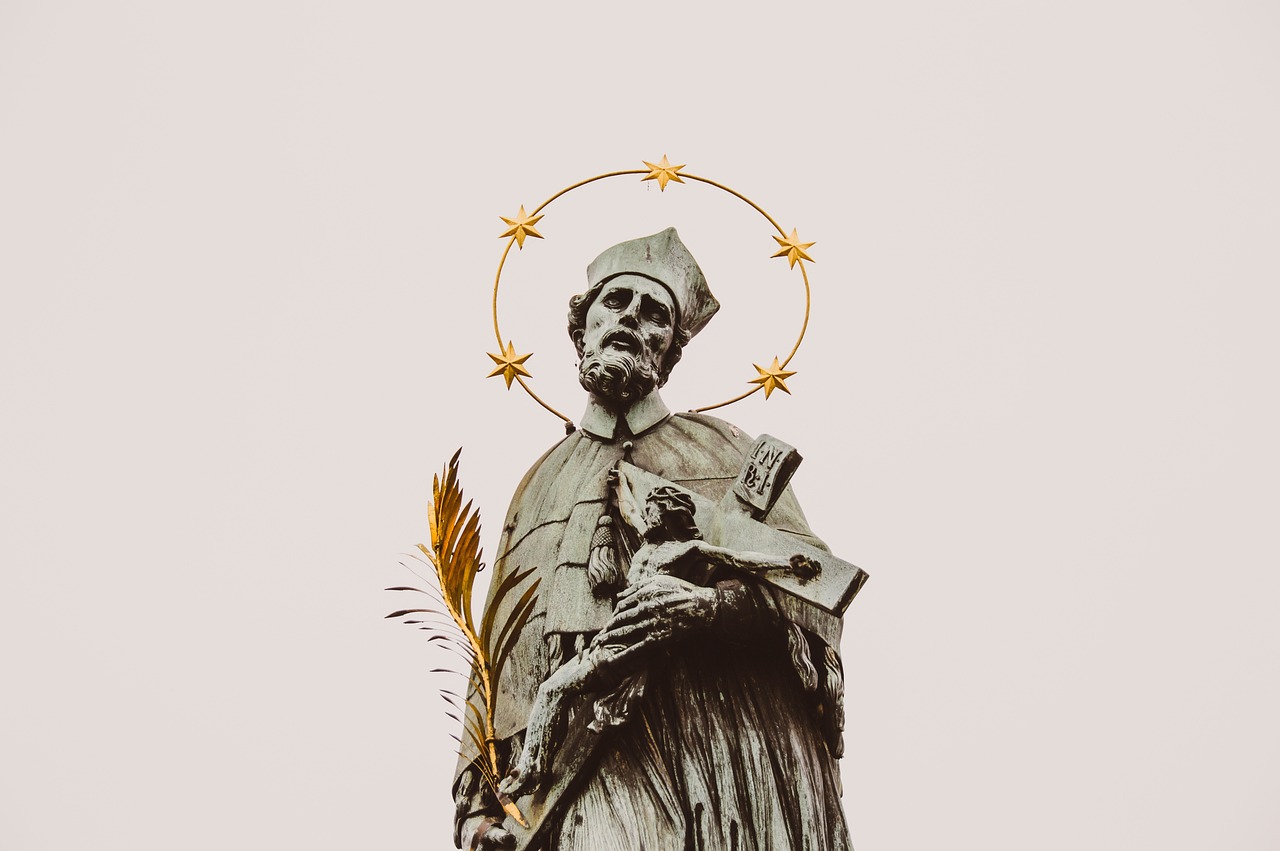
Natural Rights and Social Contract
John Locke's theories on natural rights and the social contract are fundamental pillars of his political philosophy. He believed that every individual possesses inherent rights, such as life, liberty, and property, which are not granted by the government but are derived from nature itself. These natural rights form the basis of Locke's argument for limited government and the consent of the governed.
Locke's concept of the social contract posits that individuals enter into a mutual agreement to form a government that serves to protect their natural rights and uphold the rule of law. According to Locke, the legitimacy of government rests on the consent of the governed, and rulers are bound to respect the rights and freedoms of the people they govern.
Through the social contract, individuals willingly surrender some of their freedoms to the government in exchange for protection and the preservation of their rights. However, Locke also asserted that if a government violates the natural rights of its citizens or fails to fulfill its obligations, the people have the right to resist and even overthrow that government.
Locke's ideas on natural rights and the social contract laid the groundwork for modern democratic principles, emphasizing the importance of individual sovereignty, government accountability, and the protection of basic rights. His influence can be seen in the founding documents of many democratic nations and continues to shape discussions on liberty, equality, and the role of government in society.

Tolerance and Religious Freedom
John Locke's advocacy for was a pivotal aspect of his philosophical and political beliefs. He firmly believed in the importance of allowing individuals to practice their own faith without fear of persecution or coercion. Locke's writings on religious tolerance were groundbreaking during his time, as they emphasized the need for a separation of church and state to ensure freedom of conscience for all citizens.
One of Locke's key arguments for religious tolerance was based on the idea that religious beliefs should be a matter of personal conviction rather than state imposition. He believed that individuals should have the freedom to choose their faith and worship as they see fit, without interference from the government or religious authorities. This emphasis on individual autonomy in matters of faith laid the groundwork for modern notions of religious freedom and pluralism.
Locke's advocacy for tolerance extended beyond religious beliefs to encompass political and social diversity as well. He recognized the value of diverse perspectives and opinions in a society, emphasizing the importance of respecting differing viewpoints and engaging in rational discourse rather than resorting to coercion or violence.
Locke's ideas on tolerance and religious freedom had a profound impact on the Enlightenment thinkers who followed him, as well as on the development of liberal democracies around the world. His emphasis on individual rights, including the right to religious freedom, helped shape the principles of modern democratic societies that value diversity, equality, and individual liberty.

State of Nature and Civil Society
John Locke's theory on the state of nature and civil society is a cornerstone of his political philosophy. According to Locke, the state of nature is a hypothetical pre-political condition where individuals exist in a state of perfect freedom and equality, but also face the risks of insecurity and conflict. In this natural state, each person has the inherent right to self-preservation and the protection of their property.
Locke believed that individuals would eventually come together to form civil society through a social contract to escape the uncertainties and dangers of the state of nature. This social contract involves individuals agreeing to establish a government to secure their natural rights and maintain order. The role of government, according to Locke, is to protect individual liberties and ensure justice within society.
Furthermore, Locke emphasized the importance of the consent of the governed in the establishment of legitimate political authority. He argued that governments derive their power from the consent of the people they govern, and that individuals have the right to resist or overthrow a government that violates their natural rights.
In essence, Locke's theory on the state of nature and civil society highlights the transition from a state of freedom and equality in nature to a structured society governed by laws that protect individual rights and promote the common good. This concept has had a profound impact on the development of democratic principles and the understanding of the relationship between individuals and the state.
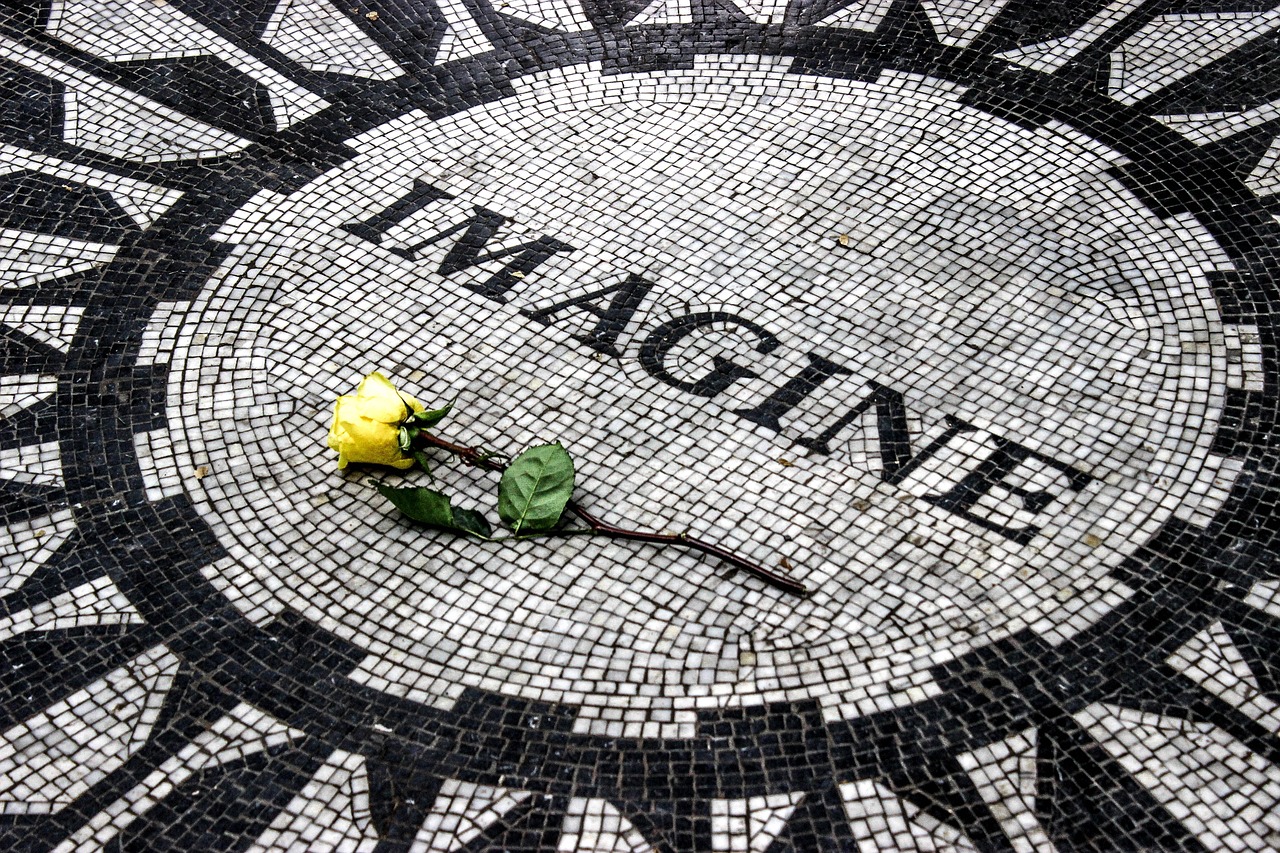
Influence on Democratic Principles
John Locke's influence on democratic principles is undeniable, as his ideas laid the groundwork for modern democratic governance. By advocating for limited government, consent of the governed, and the right to revolution, Locke emphasized the importance of individual rights and popular sovereignty in shaping political systems.
Locke's concept of limited government, where the power of rulers is constrained by law and the consent of the governed, has been instrumental in shaping democratic institutions. This principle ensures that rulers are accountable to the people they govern, preventing authoritarian rule and promoting the rule of law.
Furthermore, Locke's emphasis on the consent of the governed as the basis of political legitimacy has been a cornerstone of democratic theory. By asserting that governments derive their authority from the consent of the people they govern, Locke established the idea that individuals have the right to participate in the political process and hold their leaders accountable.
Locke's notion of the right to revolution also played a significant role in the development of democratic principles. By arguing that people have the right to overthrow a government that violates their natural rights and fails to protect their interests, Locke provided a justification for popular uprisings and resistance against oppressive regimes.
Overall, Locke's influence on democratic principles can be seen in the emphasis on individual rights, popular sovereignty, and government accountability in modern democratic societies. His ideas continue to shape debates on democracy, freedom, and the relationship between citizens and the state, highlighting the enduring relevance of his political philosophy.

Legacy and Criticisms
John Locke's contributions to political philosophy and his influence on modern liberal thought are profound. This article explores Locke's life, key ideas such as natural rights and social contract theory, and his impact on democratic principles and individual freedoms.
Exploring John Locke's legacy reveals a lasting impact on philosophy, politics, and human rights. His ideas have shaped the foundation of modern democratic societies, emphasizing individual freedoms and limited government. However, Locke's theories have faced criticisms, particularly regarding property rights, inequality, and the boundaries of individual freedom within society.
One of the key aspects of Locke's legacy is his emphasis on the protection of natural rights, including life, liberty, and property. These principles have influenced the development of legal systems and human rights declarations worldwide, advocating for the inherent dignity and autonomy of individuals.
Locke's ideas on government legitimacy through the consent of the governed have been instrumental in shaping democratic principles. By highlighting the right to revolution against oppressive regimes, Locke's theories have inspired movements for political change and the establishment of accountable governance structures.
Despite his significant contributions, Locke's concepts have not been without criticism. Some scholars argue that his theories on property rights have perpetuated inequalities and economic disparities, leading to debates on the redistribution of wealth and resources in society.
Furthermore, concerns have been raised about the limits of individual freedom within Locke's framework. Critics question whether his emphasis on personal liberties adequately addresses collective responsibilities and social welfare, prompting discussions on the balance between individual rights and the common good.
In assessing Locke's legacy, it is essential to consider both the enduring influence of his ideas on liberal democracy and the ongoing debates surrounding their practical implementation. By critically examining his contributions and addressing criticisms constructively, we can continue to refine and adapt Locke's principles to meet the evolving challenges of contemporary society.
Coming soon...

Contemporary Relevance
John Locke's ideas continue to resonate in contemporary political discourse, shaping discussions on governance, individual rights, and the rule of law. In today's complex world, where issues of freedom, equality, and justice remain at the forefront, Locke's principles offer valuable insights.
Locke's emphasis on individual rights serves as a cornerstone for modern democracies, highlighting the importance of protecting personal liberties against encroaching state power. His advocacy for limited government and the rule of law underscores the need for institutions to be accountable and transparent in their actions.
Furthermore, Locke's belief in the consent of the governed and the right to revolution has influenced movements for social change and political reform. His ideas on the contractual nature of government remind us that political authority derives from the people, necessitating their active participation in decision-making processes.
In today's globalized world, where diverse societies coexist, Locke's philosophy of tolerance and religious freedom remains relevant. His call for respect for different beliefs and the separation of church and state offers a blueprint for fostering peaceful coexistence and upholding individual autonomy.
Moreover, Locke's theories on property rights and the pursuit of happiness continue to inform debates on economic justice and social equity. While critics raise concerns about the implications of unchecked capitalism and growing inequality, Locke's emphasis on individual empowerment and the protection of private property rights sparks discussions on wealth distribution and social welfare policies.
Overall, John Locke's enduring legacy lies in his defense of individual freedoms, his promotion of democratic values, and his vision of a just society based on the consent of the governed. As we navigate the complexities of the modern world, Locke's principles serve as a guiding light, challenging us to uphold the rights and dignity of every individual.
Frequently Asked Questions
- What were John Locke's major contributions to political philosophy?
John Locke made significant contributions to political philosophy, including his ideas on natural rights, social contract theory, and the role of government in protecting individual liberties.
- How did Locke's concept of natural rights influence modern democratic principles?
Locke's concept of natural rights, such as life, liberty, and property, laid the foundation for modern ideas of individual freedoms, government legitimacy, and the consent of the governed in democratic societies.
- What is the significance of Locke's theory of the social contract?
Locke's theory of the social contract posits that individuals enter into a mutual agreement with the government to protect their rights and promote the common good, forming the basis of legitimate governance and political authority.
- How did Locke's advocacy for religious tolerance impact Enlightenment thought?
Locke's advocacy for religious tolerance and freedom of conscience influenced Enlightenment thinkers and the development of liberal democracies by promoting the idea of religious pluralism and the separation of church and state.
- What criticisms have been raised against John Locke's political ideas?
Criticisms of Locke's political ideas include concerns about property rights, inequality, and the limits of individual freedom within society, prompting debates on the balance between individual liberties and societal interests.






